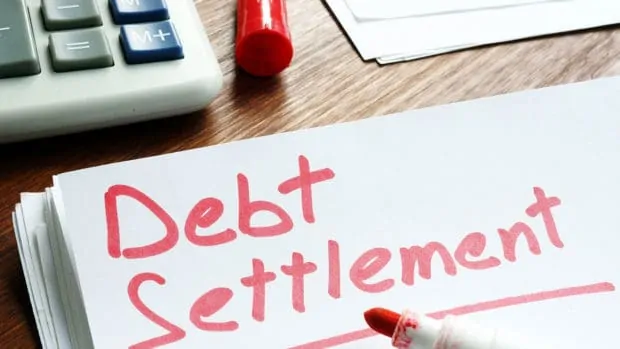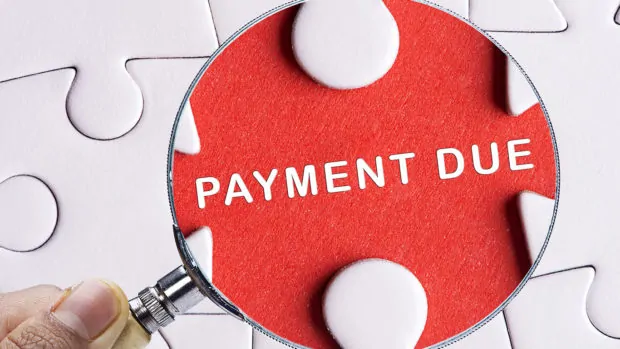The adage that words matter has never been truer than it is with debt collection. Debt collectors have a dark reputation, and rightly so. It’s a tough business, and unscrupulous collectors were so pervasive, the federal government passed a law to protect us from them. It’s called the Fair Debt Collection Practices Act. Collectors only have a limited amount of time that they can legally pursue you to collect a debt. However, there are things you can say when they contact you that can reset the clock on the statute of limitations in many states.
Knowing how to communicate with a debt collector is crucial to avoid zombie debt that follows you forever.
What is the debt collection statute of limitations in your state?
The debt collection statute of limitations is the amount of time that a debt collector has to legally sue you for a debt. A collector only has a certain number of years where they can take you to court to force you to pay a debt that you owe. The maximum statute nationwide is 15 years. However, in most states, the period for credit card contracts and loans is limited to 4-6 years.
The statute of limitations on collection
Every state has different rules on the number of years that a debt collector can pursue payment through the courts. The maximum is 15 years, but the specific number is set by each state. It also depends on the type of contract that created the debt.
These are the four types of contracts you can make for debt:The shortest statute of limitations is only two years for oral contracts made in California.
- Written contracts
- Oral contracts
- Promissory notes
- Open-end accounts (credit line)
Really, the two that most consumers need to be concerned with are written contracts (loans) and open-end accounts (credit cards).
Find solutions to settle collections and stop collector harassment.
Warning: A collector can chase you longer than they can take you to court!
It’s important to note that just because a collector can’t legally force collection through the courts, that doesn’t necessarily mean that they will stop contacting you. By law, a collector can continue to contact you even after the statute of limitations expires.
They’re basically trying to get you to voluntarily agree to repay the debt, even though they no longer have any legal right to force you to repay. Many collectors will continue to do this until you tell them that you no longer wish to be contacted regarding this debt.
Once you do that, all contact must cease. Since they can’t sue you in court, that should stop all remaining collection attempts. If the company continues to contact you, then you actually have a legal right to sue them.
The 11 word phrase to stop debt collectors
”Please cease and desist all calls and contact with me, immediately.”
3 things you should never say to a debt collector
In some states, it’s possible to reset the clock on the statute of limitations if a collector can get you to say certain things, this is called re-aging debt. You basically acknowledge that you owe the debt, which can immediately reset the clock, depending on where you live.
So, for example, if a debt has been in collections for five years, you should only have one year left in most states before the statute expires. However, if the collector gets you to acknowledge that you owe the debt, the clock goes back to zero. Now the collector has another six years to chase you.
This is not true in all states. Some states, such as Florida, have laws that prevent this collection trick. Still, unless you know your state’s rules (you can contact your State Attorney General if you want to find out), you should avoid these three types of statements:
“I owe this debt, but I can’t afford to pay you right now.”
This is the most common statement people make that resets the debt collection statute of limitations. It seems simple enough and it’s coming from a good place – you’re trying to get the collector to understand you’re having a hard time.
But what you really did was make a legal acknowledgment that you owe the debt. This can automatically reset the clock on how long a collector can pursue legal action against you in many states.
What to say instead
Instead of acknowledging that you owe the debt, ask the collector to send you documentation verifying that the debt is yours. From the first time a collector calls you, they are legally required to send you this documentation within 30 days. If you don’t receive this paperwork verifying the debt, the collector has no legal leg to stand on.
“I can only afford to pay you _______.”
Agreeing to make any payment, even a small portion of what you owe, also acknowledges that you owe a debt. You might think that agreeing to pay whatever you can afford is taking a positive step. However, all you really do is reset the clock on the statute of limitations.
This can be especially dangerous for a debt that’s already passed the statute of limitations. If you have an old debt that can no longer be collected through the courts and you agree to make any payment, now the collector has the right to drag you back to court in some states.
What to say instead
Tell the collector that you will only communicate with them in writing. Request that they send you information verifying that the debt is yours. If they would be willing to settle the debt for a partial amount, they need to send you a letter. But again, don’t acknowledge the debt in any way!
“I’m not paying you unless you take me to court.”
This statement essentially acknowledges that the debt is yours. So again, you reset the collection clock. Now the collector has a right to take you to court to do just that. You want to avoid saying anything that even hints at acknowledging that you owe the debt.
What to say instead
If the debt isn’t past the statute of limitations, tell the collector that they need to send you documentation to verify that the debt is yours. If you believe that the debt is past the statute of limitations, then you can tell them that you no longer wish to be contacted regarding this debt. They have no legal leg to stand on, following that.
Tips for talking to a debt collector
#1: Stick to snail mail
Given how easy it is for a collector to trick you into saying something that can reset the collection clock, you should tell any collector who calls you that you only wish to be contacted in writing. Communicating by letter limits the chances that you’ll accidentally say something that’s not in your best interest.
#2: Know the collection rules for your state
Check your State Attorney General’s website for information about specific collection laws in your state. If you can’t find the information on the website, call the State AG’s office or contact your local Legal Aid Society for more information.
#3: Know when the clock runs out on your debts
If you have a debt in collections, you should know exactly when the clock will run out. In most states, the clock for the statute of limitations starts on the date that the account first became delinquent. So, it’s usually the date that your last payment was made on the original account.
Be aware that in some states, the law states that the collection clock starts up to six months after you make your last payment. Again, check the rules for your state so you know how the rules work. That way, you can use them to your advantage instead of letting a collector take advantage of you.
#4: Always ask the collector to verify the debt
By law, a collector is supposed to send you documentation verifying a debt within 30 days of their first contact with you. If you haven’t received this, ask for it in writing. Many third-party debt collectors don’t have complete information. Debt buyers will purchase and sell portfolios of debt many times over, and information could have been lost along the way.
If this happens, it’s good news for you. Unless the collector has all of the information required to verify the debt in your state, that can’t legally pursue you to collect.
Expert responds to collection question
Question: What does it mean that a credit debt is no longer collectible? My father is now in a home, and when I went through his financial records, I found he owed nearly $2,000 on a credit card from the 1990s! Does he still have to pay that? He says he doesn’t, but he’s also suffering from some dementia. Will I get stuck with this bill, since I’m now taking care of him? My mother died a few years ago, and I’m an only child.
— Regina in New York
Howard Dvorkin answers…
The answer is simple: Your father owes nothing. The explanation behind the answer is a little more complicated. I’ll describe it like this…
Let’s pretend we’re peering into a crystal ball and viewing your father back in the 1990s. He has run up $2,000 on his credit card and has simply ignored his statements. What happens next? If you want all the gory details, read Debt.com’s report, What Happens If I Stop Paying My Credit Cards?
I’ll cut to the chase: Six months later, after his credit card issuer has asked nicely and sternly to please pay what you’ve already spent, the entire amount goes into collections.
So when is a debt no longer collectible?
Suppose your father’s debt went into collections even as late as the end of 1999. If it wasn’t paid by the end of 2014, it’s now “time-barred.” That means your father can’t be sued to collect the money. It’s as good as gone.
Even if it wasn’t, you’re not affected unless your name was on the credit card account. I most often hear similar questions from spouses. (Check out Am I Responsible For My Spouse’s Credit Card Debt?)
This all sounds like good news, but I’ll give you this warning: Review your father’s financial records carefully. In my experience, someone who ignored their credit card bill until it went into collections probably didn’t stop there. He may have more recent bills that also went unpaid.
Depending on their dates and dispositions, he could still be pursued by debt collectors. I’ve heard of collectors targeting the children of infirm parents, hoping to scare them into paying.






